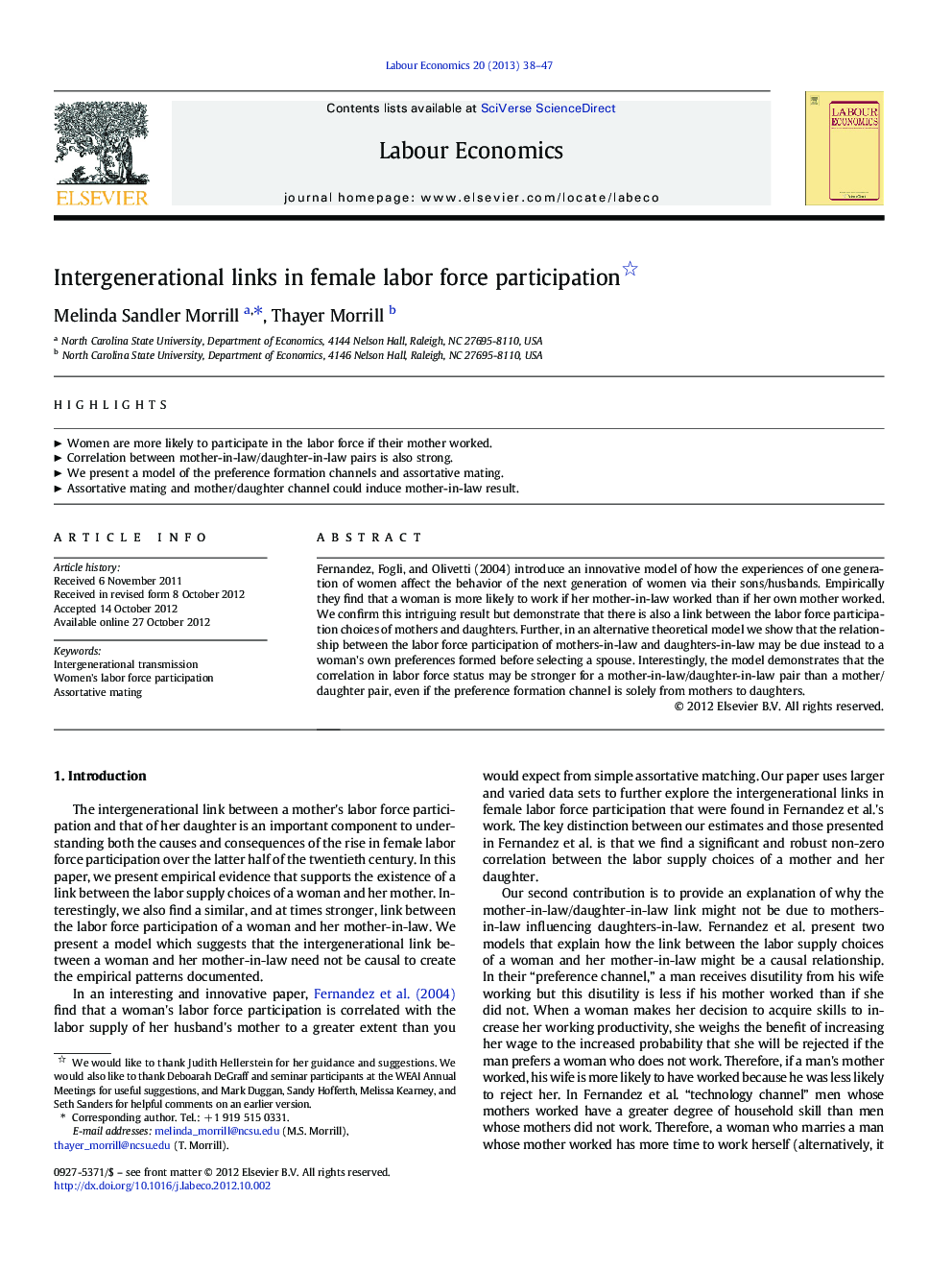| Article ID | Journal | Published Year | Pages | File Type |
|---|---|---|---|---|
| 971510 | Labour Economics | 2013 | 10 Pages |
Fernandez, Fogli, and Olivetti (2004) introduce an innovative model of how the experiences of one generation of women affect the behavior of the next generation of women via their sons/husbands. Empirically they find that a woman is more likely to work if her mother-in-law worked than if her own mother worked. We confirm this intriguing result but demonstrate that there is also a link between the labor force participation choices of mothers and daughters. Further, in an alternative theoretical model we show that the relationship between the labor force participation of mothers-in-law and daughters-in-law may be due instead to a woman's own preferences formed before selecting a spouse. Interestingly, the model demonstrates that the correlation in labor force status may be stronger for a mother-in-law/daughter-in-law pair than a mother/daughter pair, even if the preference formation channel is solely from mothers to daughters.
► Women are more likely to participate in the labor force if their mother worked. ► Correlation between mother-in-law/daughter-in-law pairs is also strong. ► We present a model of the preference formation channels and assortative mating. ► Assortative mating and mother/daughter channel could induce mother-in-law result.
